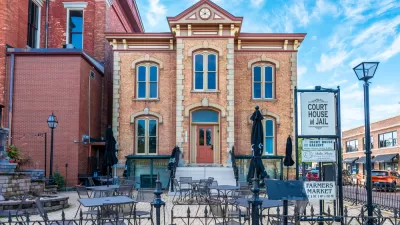Although the nation's housing market appears to be improving, the foreclosure crisis is far from over. Following in the footsteps of other localities, Cook County, Illinois, is creating a countywide land bank to help address its foreclosures.
"Cook County is home to the nation’s third largest city, as well as some of the deepest economic craters left by the ongoing housing crisis," writes Chris Bentley. "Some 40,000 vacant units, many of them underwater, restrain economic development in the second-most populous county in the U.S."
With a unanimous vote last week to approve the creation of a countywide land bank, the Cook County is moving aggressively to help address its problematic properties and their negative neighborhood impacts, by following in the footsteps of other Midwestern localities such as Kansas City.
“We want to stem the rate of decline and the spread of blight that is happening not just in low-income communities,” said Herman Brewer, bureau chief of the Cook County Bureau of Economic Development, “but middle-income and high-income communities where you’ve got abandoned McMansions.”
According to Bentley, "The roughly $15 million in seed money needed to start the operation will come from local foundations, not the county. Officials expect future activities will be self-funded, perhaps through property sales and rentals. Details will be hashed out over the next year, as the entity’s first expenditures go toward hiring a staff. After that the organization, which will be independent of County Board leadership, will begin to acquire property, forgive back taxes and vet prospective buyers who can credibly promise productive use for the land they wish to acquire."
FULL STORY: Cooking Up a Solution to Foreclosures

Alabama: Trump Terminates Settlements for Black Communities Harmed By Raw Sewage
Trump deemed the landmark civil rights agreement “illegal DEI and environmental justice policy.”

Study: Maui’s Plan to Convert Vacation Rentals to Long-Term Housing Could Cause Nearly $1 Billion Economic Loss
The plan would reduce visitor accommodation by 25% resulting in 1,900 jobs lost.

Why Should We Subsidize Public Transportation?
Many public transit agencies face financial stress due to rising costs, declining fare revenue, and declining subsidies. Transit advocates must provide a strong business case for increasing public transit funding.

Paris Bike Boom Leads to Steep Drop in Air Pollution
The French city’s air quality has improved dramatically in the past 20 years, coinciding with a growth in cycling.

Why Housing Costs More to Build in California Than in Texas
Hard costs like labor and materials combined with ‘soft’ costs such as permitting make building in the San Francisco Bay Area almost three times as costly as in Texas cities.

San Diego County Sees a Rise in Urban Coyotes
San Diego County experiences a rise in urban coyotes, as sightings become prevalent throughout its urban neighbourhoods and surrounding areas.
Urban Design for Planners 1: Software Tools
This six-course series explores essential urban design concepts using open source software and equips planners with the tools they need to participate fully in the urban design process.
Planning for Universal Design
Learn the tools for implementing Universal Design in planning regulations.
Smith Gee Studio
Alamo Area Metropolitan Planning Organization
City of Santa Clarita
Institute for Housing and Urban Development Studies (IHS)
City of Grandview
Harvard GSD Executive Education
Toledo-Lucas County Plan Commissions
Salt Lake City
NYU Wagner Graduate School of Public Service




























